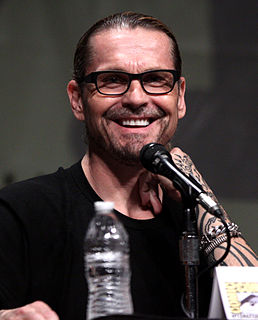A Quote by Kathryn Lasky
I can read a newspaper article, and it might trigger something else in my mind. I often like to choose in historical fiction things or subject matter I don't feel have been given a fair shake in history.
Related Quotes
It's not fair that our name can be used in any newspaper, any article connected with anything, and we can't really fight about it. It's like any newspaper that might take a picture of you, bad or good, and sometimes they're awful pictures, and they can use them without your approval and you can't do anything about it.
I often tell people who want to write historical fiction: don't read all that much about the period you're writing about; read things from the period that you're writing about. There's a tendency to stoke up on a lot of biography and a lot of history, and not to actually get back to the original sources.
I have often been asked to be fair and view a matter from all sides. I did so, hoping that something might improve if I viewed allsides of it. But the result was the same. So I went back to viewing things only from one side, which saves me a lot of work and disappointment. For it is comforting to regard something as bad and to be able to use one's prejudice as an excuse.
I'm not sure Riot Grrrl would have been as big a deal if the Internet had existed back then. Because there's so much stuff on the Internet. People could have been like, oh, whatever, I'm going to go look at pictures of Barbie vaginas, you know what I mean? There's so many different things on the Internet, you read one article and then you read something linked off that article and you go down the rabbit hole.
I think all of us begin as writers. I wanted to be a writer from the time I as eight, long before I heard of jazz. The question is, once you have that obsession, what is your subject going to be and you often don't know for some time. It might become fiction, it might be non-fiction, and if it's non-fiction it can go in any number of directions.



































